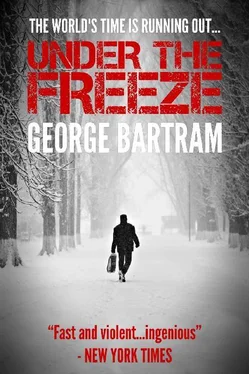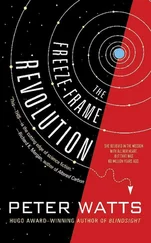“Yes?” cried a shrill but proper female voice. “Yes?”
“Mrs. Muriel Bentham, please.”
“This is she!” Mrs. Bentham sounded a little like Margaret Thatcher and a little like an Alpine guide coaxing an echo from a peak.
“I’m looking for the Muriel Bentham who does research.”
“Oh, yes.” Mrs. Bentham seemed to be hunting for the mot juste , but she settled for, “Yes, this is she.”
“Yes, Mrs. Bentham, my name is Rider; you did some work for me a few years ago, it had to do with some historical research.”
“Oh, yes, Mr. Rider!” He was sure she didn’t remember at all, but she said, with that same high-pitched, remarkably loud voice, “The Canadian gentleman who was writing the book about weather.”
It turned out that he was the one who had forgotten. He wouldn’t have remembered what book he was pretending to write. “Yes, very good,” he said.
“How did the book turn out?” she demanded.
“Very well. Thank you.”
“I never saw it in the stores.”
“It wasn’t sold in the stores.”
“Oh. How very odd.”
“I’d like you to do something more for me.”
“Oh, yes, I’d be delighted.” Her powerful voice took on a sharpness. “My rates have gone up. Because of the economy.”
“Of course.”
“Is this about weather?”
“Military history.”
“Ah. Very much the same thing.”
He supposed that that remark meant something to her. It certainly meant nothing to him. “Naval history, to be precise.”
“That’s nice. I respect the navy.”
“Yes.” He wondered if Mrs. Bentham had gone funny in eleven years. She had been, he thought, in her fifties back then, already widowed, the sharpest researcher he had ever encountered. She had been a librarian who had grown impatient with poor pay. “It’s about a ship in the Second World War. Can I give you the details now?”
“I was dusting.”
“I beg your pardon?”
“I don’t have a pencil in my hand. I have a duster.”
“Ah.”
“I shall need to write it down. Shall I get a pen?”
“Please.”
She was back within seconds. “Yes?” she bellowed.
“HMS Loyal ,” he said.
“Yes?”
“I want to know everything about its encounter with a German cruiser called the Prinz von Hamburg in 1944.”
“Surely not everything!” she cried. “Everything would fill volumes.”
“Very well, not everything. Salient details.”
“Ah, what a nice word salient is! You even talk like a writer, Mr. Rudge.”
“Rider.”
“What?”
“My name is Rider.”
“Of course it is.” She began to tell him how she would proceed. Her grasp of that seemed very sharp; he decided he would trust to his first experience with her and hope for the best. He said he would call her each evening at the same number, then rang off.
He had several hours until Johnnie Carrington’s young man would give him the message or, failing that, until he could get Carrington at home. He had brought no clothes; he would need some. He started to leave the telephone box to hunt out a store, and then, with a smile, he thought of the label in Repin’s coat, back in Havana. Hire Attire. He found it in the telephone book, and, still smiling, he headed for the underground.
It was in an area of shops and small restaurants above Knightsbridge. Here, in a back street that was almost an alley, a black sign no larger than the New Monroe’s advertised Hire Attire in chipped gold letters. In the window were several dusty bolts of cloth and a faded picture, circa 1965, of a man in evening dress. Inside was the odor of clothespressing, a mixture of steam and burned fiber. There was a counter that divided the shop, shelves stacked with boxes and two clothes racks behind it, and, beyond that, a doorway through which he could see an old man bent over a tailor’s bench. The long walls were lined with ranks of closed cupboards, from floor to ceiling.
“I think I need some clothes,” Tarp said.
“Oh, yes.” The man behind the counter was tall, old, bald, and beaked, but unbent. He looked as if he had been a gentleman or a butler or an actor.
“I’d like a decent suit.”
“Of course.” The huge nose dominated the face; on each side of it small eyes darted back and forth as if trying to find a way around. The old head was thrown back — it was this gesture that made him seem an actor — and he looked Tarp up and down and all around. “Six feet one, sir?”
“And a quarter.”
“Chest forty-four,” the man murmured to himself. He raised his eyebrows almost disapprovingly. “Your hips are a problem.” He inhaled, ending in a sniff. “So very narrow.” He turned his head halfway toward the rear doorway. “Mr. Goldberg!”
The other old man got down from his tailor’s bench as if every joint in his body hated him for it and came slowly forward, pushing aside a drape that had already been pushed aside, perhaps years before. He had the remains of a once abundant crop of curly hair plastered against his skull with sweat or oil; on the back of his head was a plain black yarmulke. He wore a shirt but no tie, a vest open all the way down, and pants that sagged under a round belly.
“Yes, Mr. McCann?” he said in a sepulchral voice.
“This gentleman wants suitings, Mr. Goldberg, but you see the matter of the hips. Would you prefer that I go small so that you may enlarge, or large so that you can make small?”
Goldberg whipped a worn measuring tape from around his neck and passed it about Tarp’s waist as if he were about to do a magic trick. He joined the tape again in front and held it with one hand. “That is some waist you got,” he said. “What are you, an ath-a-lete?”
“I’m a farmer,” Tarp said softly.
Mr. Goldberg looked up at his eyes, then down at his shoes. “Nice clean farm you got,” he said. “Fit his chest and height and I make good the rest, Mr. McCann.”
“Thank you, Mr. Goldberg.”
“That lot come up from Surrey last month, Mr. McCann. Like it was made for him, except the waist.”
“My very thought, Mr. Goldberg.”
Goldberg padded back to the workroom, and McCann pulled a wheeled ladder from the back of the store and rolled it along the ranks of cupboards, then stopped partway along and went elegantly up the ladder as if he were rehearsing for an ascent into Heaven. He opened a cupboard up toward the ceiling and took down several garment bags, which he brought down and on an aged circular rack. “The very finest quality, sir,” he said. “The very finest. The owner was from one of our best families. I cannot mention the name — it is our policy, Mr. Goldberg’s and my own, never to mention names — but one of the very best. These are from his estate. I am able to say that such quality can hardly be found anywhere in the world anymore. You know what times we live in.” He flipped back a lapel. “Hand stitching, of course — look at it.” He lowered his voice. “Mr. Goldberg says it is almost as good as his own !” He took four suits out of the bags, one a dinner jacket.
“I don’t need them all.”
“No.” McCann sounded sad.
“I need a suit today.”
“That is possible, sir.”
“I think a friend of mine is one of your customers.”
“We are pleased to hear it, sir.”
“A Russian.”
“I believe we have a Russian client, sir.”
McCann’s discretion was remarkable. Tarp warmed to him. He tried on the suits. They fit beautifully in the chest and shoulders but were large in the waist, as had been predicted.
“I could make a discount for all four,” McCann suggested.
“I could take two of them.”
Читать дальше












